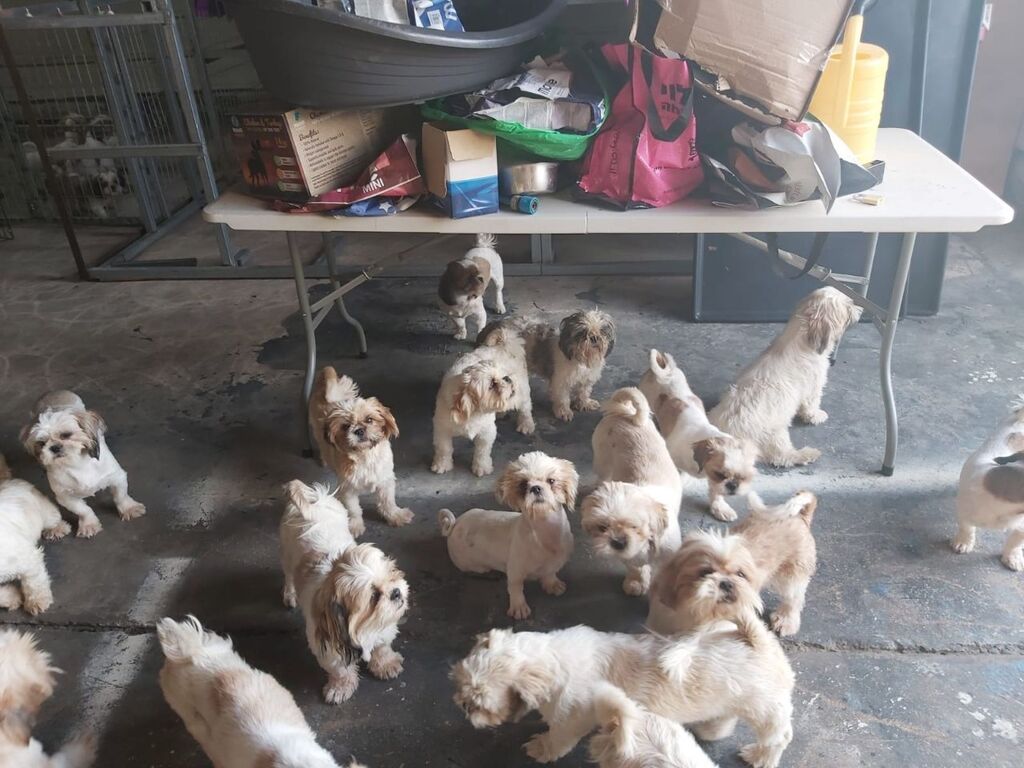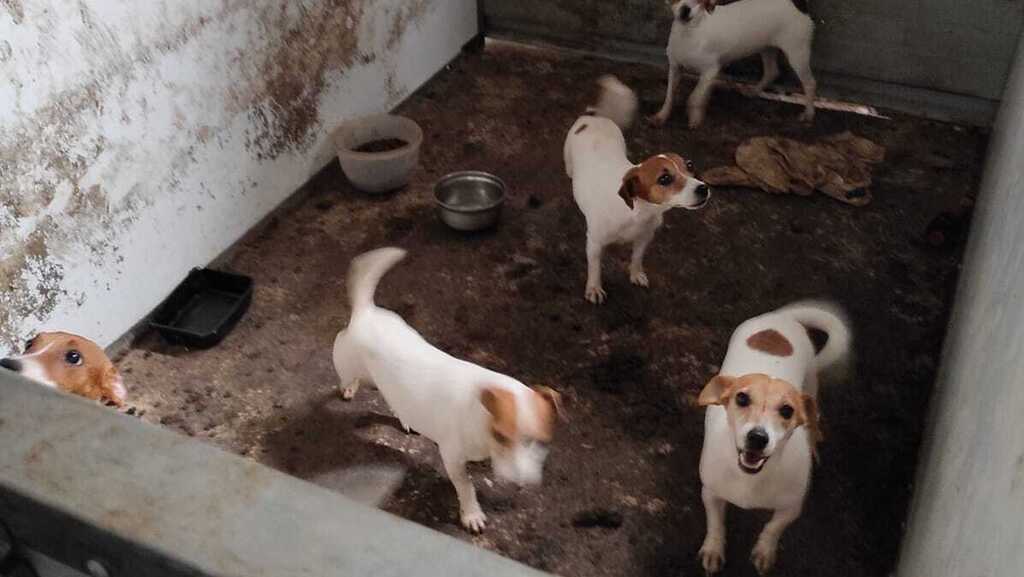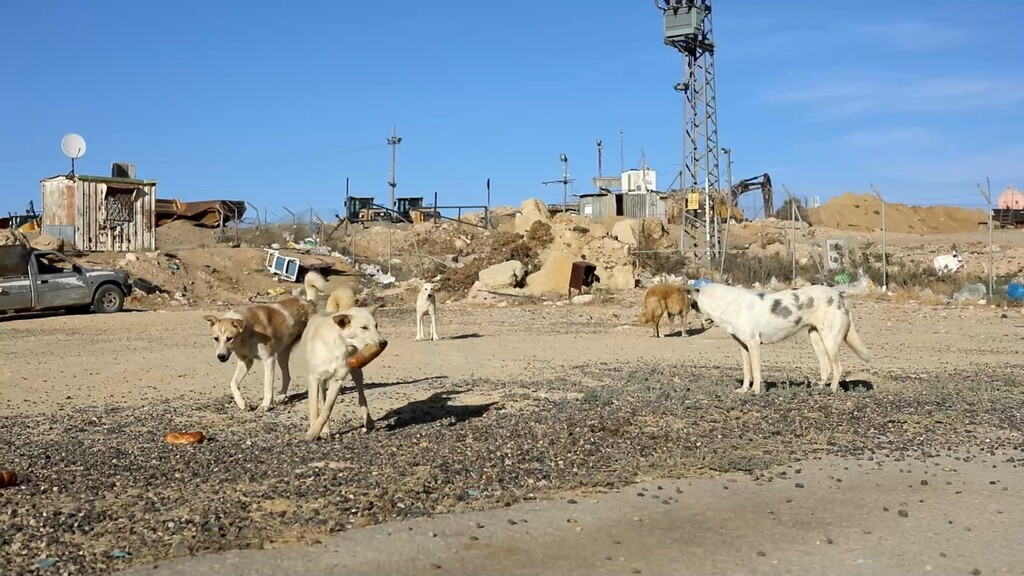Israeli officials on Monday asked the public not to buy pets from illegal puppy mills after one of the mills was said to have sold over dozens of dogs afflicted with a disease contagious to humans.
The Agriculture Ministry urged those who wish to get a pet to adopt it rather than purchase, from recognized rescue centers and municipal pounds.
3 View gallery


Shih Tzu puppies held in an illegal puppy mill in northern Israel
(Photo: Israel Police)
Last month, police raided a puppy mill "GUR BE'AHAVA" in northern Israel, where over 100 puppies were found to have contracted brucella canis, which is very dangerous to both canines and humans.
The Agricultural Ministry imposed a closure order on the mill and even begun legal actions against it. But in the past days veterinarian officials were informed that dogs from the mill continued to be sold, without receiving prior medical treatment or neutering, in violation of government regulations.
Officials also rescued 90 dogs from an illegal mill in the Gilboa Regional Council in northern Israel.
"These farms hold tens and hundreds of dogs to meet with public demand," said Dr. Tamir Goshen, head of veterinarian services in the Agricultural Ministry. "These dogs are a status symbol. Female dogs are kept for only one purpose - becoming puppy birthing machines," he said.
"In many cases, we uncover severe violations and confiscate the dogs. The public forgets that when you take a dog, it is a friend for life. If you adopt a certain dog for its breed and color, there might be a far more special one, which is just as healthy and friendly at a public pound. That dog sometimes dies because he never finds a home," he added.
Goshen said that a person who gets a dog from an unregulated mill unknowingly is supporting an industry that exploits these animals. "A mutt is the purest breed of dogs."
He also said that there is a serious problem developing due to uncontrolled breeding of feral dogs, which mostly reside in southern Israel.
"These are big dogs, which run wild and risk human lives," Goshen said. "They eat farm animals, spread diseases and endanger the local wildlife. The issue of feral dogs should be on a national agenda."
The Agriculture Ministry called on the public to not buy or adopt a dog before verifying its origin and physical condition.
In addition, veterinarian services suggest the public tests their dogs for any disease to safeguard the animals and the household.
Such an test costs around NIS 50 and can also be conducted at the Agricultural Ministry's Vetreniarian Labs at Beit Dagan.
"The public should be careful when adopting or buying small dogs (Shih Tzu, Pomeranian, Cavalier King Charles Spaniel) whose origin is not known," Goshen said. "Those who still want such breeds, must insist on a medical exam before the adoption or purchase is finalized."



